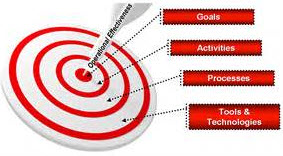“Operational effectiveness and strategy are both essential to superior performance.”
– Michael Porter, Author, Harvard Professor

Each year, we select a theme with hints on that topic for discussion throughout the year. Our theme for this year is identifying the signs of an operationally effective organization.
We often ask our Clients if their organizations are operationally effective and typically the answer is either “Of course” or “I’m not sure.” How do you know if your organization is operating as intended? How do you know if your organization is effective? Are you sure your day-to-day tasks are aligning with the organization’s Mission and Goals? What is missing to achieve your operational excellence? These are the questions we will be exploring throughout this year.
As we begin, we need to first define “what is operational effectiveness?” Unfortunately, there is often confusion between “effectiveness” and “efficiency.” Dictionary.com defines efficiency as “performing or functioning in the best possible manner with the least waste of time and effort,” while defining effectiveness as “producing the intended or expected result.”
Often, an organization will concentrate on being efficient without realizing that they must first look at what is being done daily and align those tasks with the organization’s strategic goals (or “intended or expected result”). Understanding the goals and priorities of an organization is the foundation for effectiveness.
Our focus this year will be to more clearly outline the characteristics that are needed for an operationally effective organization. This will ultimately create an efficient organization as well.
